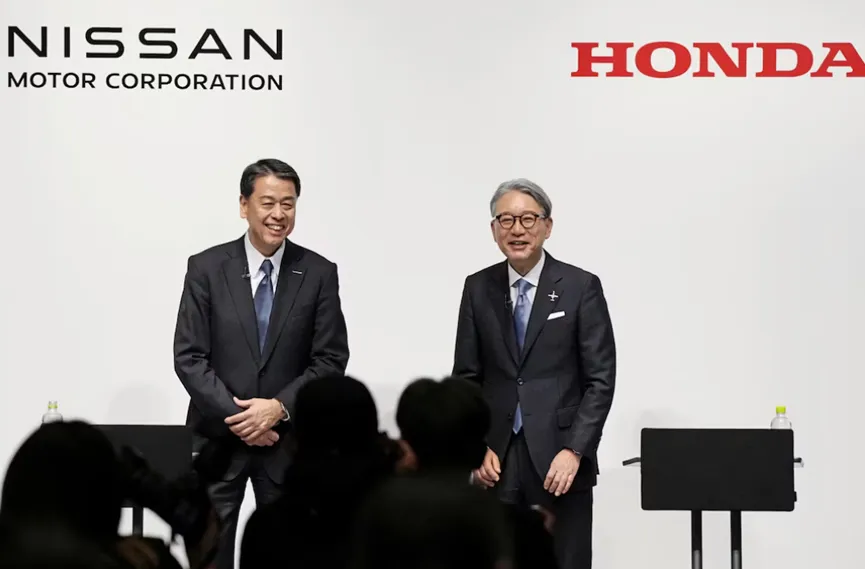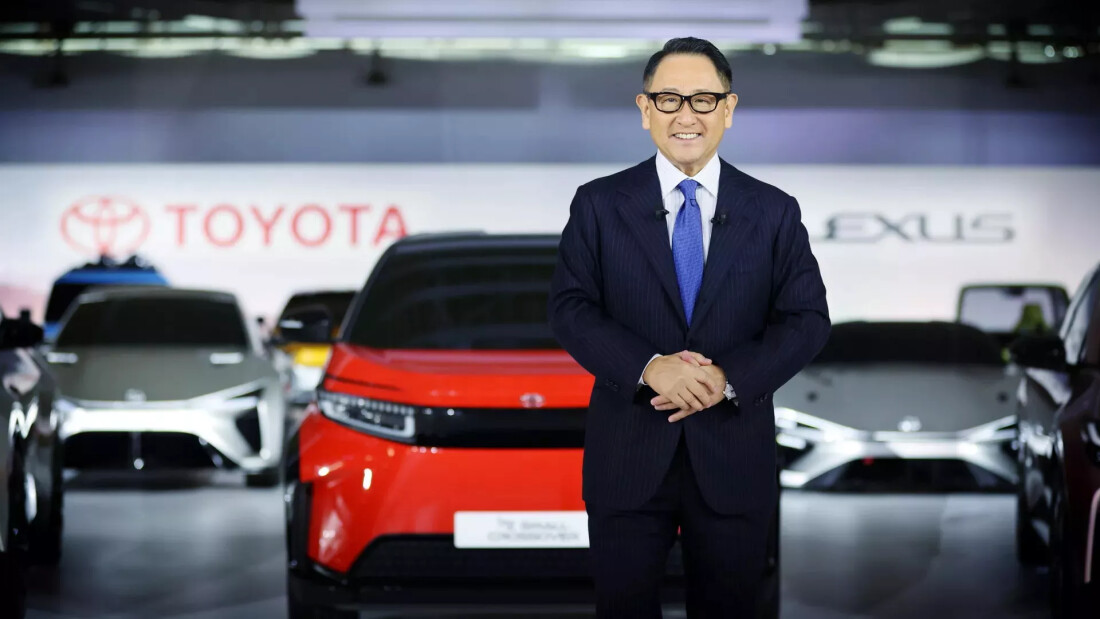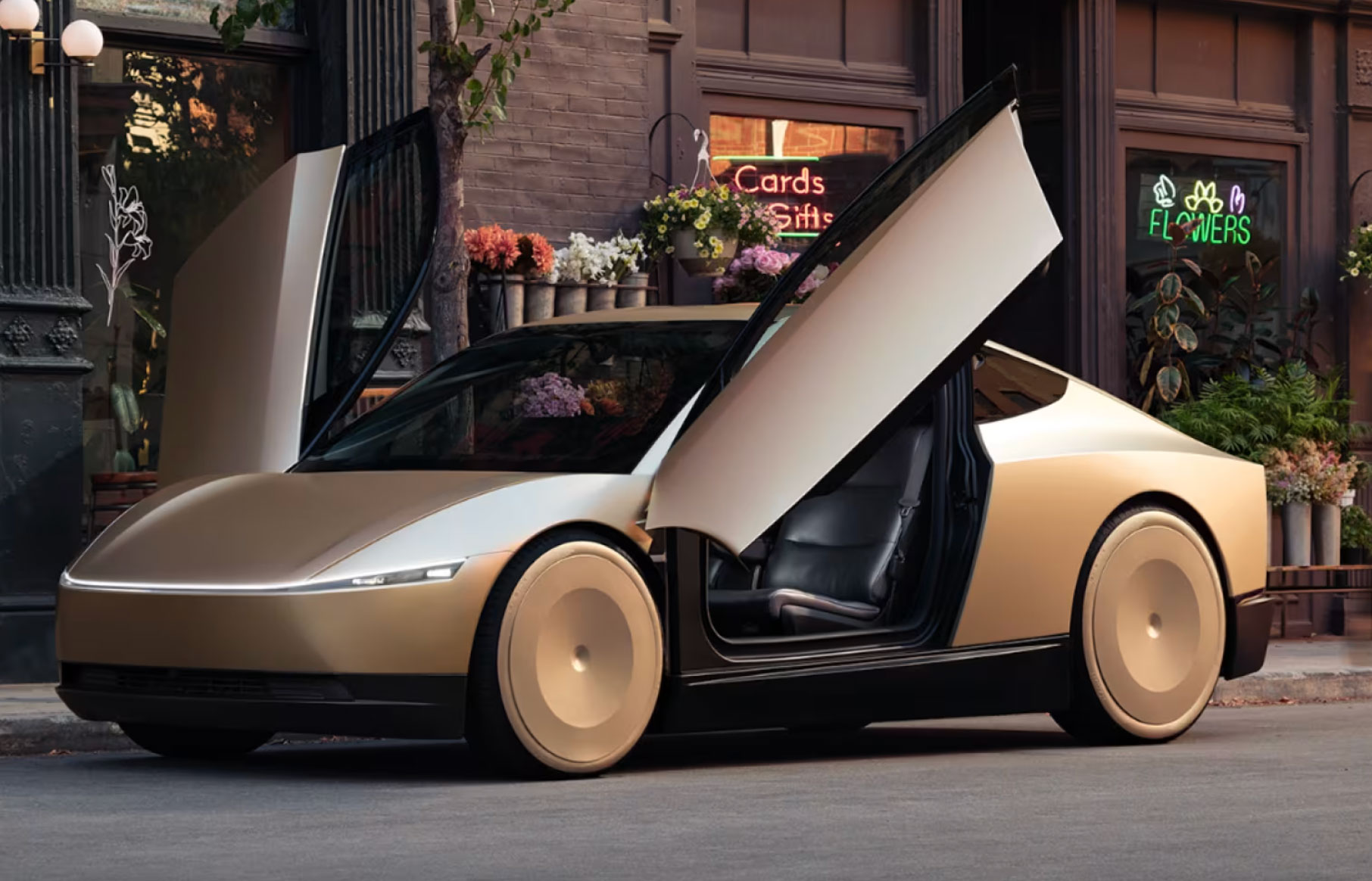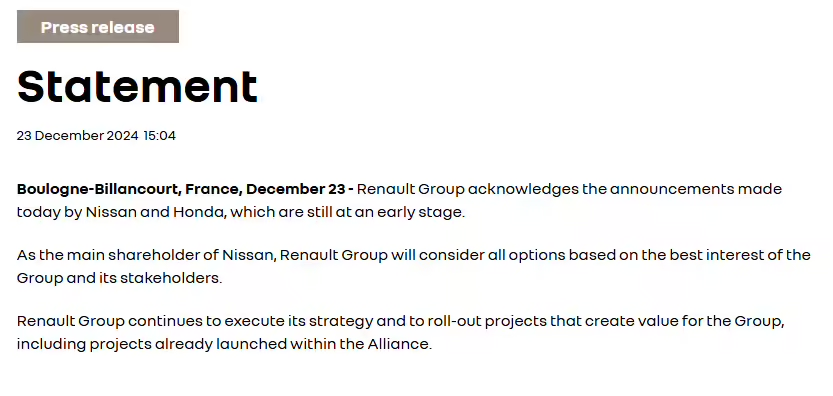Honda and Nissan Plan to Merge, Becoming the World's Third Largest Auto Group
Introduction: Honda and Nissan are facing competition from Tesla and Chinese electric vehicle manufacturers.

According to two informed sources, Honda and Nissan are discussing deepening their cooperation and possibly merging. This is the most explicit sign to date that Japan's once seemingly invincible automotive industry is being reshaped due to the impact of challenges from Tesla and Chinese competitors.
If Honda and Nissan merge, it would form a company with a market value of $54 billion and an annual production of 7.4 million vehicles, becoming the world's third-largest automotive group, only behind Toyota and Volkswagen.
The two companies have already established a strategic partnership in March this year, aimed at jointly developing electric vehicles. However, Nissan's recent financial and strategic difficulties have made the need for cooperation with a larger competitor like Honda more urgent.
Nissan announced a cost-saving plan worth $2.6 billion last month, including laying off 9,000 people and reducing global production capacity by 20%. Due to declining sales in the Chinese and American markets, Nissan's profits plummeted by 85% in the second quarter.
Sanshiro Fukao, Executive Researcher at Itochu Research Institute, said: 'This deal seems more about rescuing Nissan, but Honda itself is not standing still. Honda's cash flow may deteriorate next year, and its electric vehicles are not performing well either.'
On Wednesday, Nissan's stock price rose nearly 24% in Tokyo trading, while Honda's stock price fell by 3%, even though Honda's market value is more than four times that of Nissan, at $43 billion. Mitsubishi Motors' stock price rose by nearly 20%.
These automakers have been dealing with challenges from electric vehicle manufacturers, especially in China, where companies like BYD have quickly taken the lead.
According to Nikkei News, which first reported the story, negotiations between Honda and Nissan will strengthen the two companies' cooperation in the technology field and help them build a stronger competitor in the domestic market to challenge Toyota.
Sources revealed that the focus of these discussions includes finding ways to strengthen cooperation, such as the possibility of establishing a holding company. These individuals requested anonymity because the information has not yet been made public.
One of the sources also said that the two companies are exploring the possibility of a complete merger and are considering ways to cooperate with Mitsubishi Motors, with Nissan being the largest shareholder of Mitsubishi, holding a 24% stake.
Honda, Nissan, and Mitsubishi have all stated that no transaction has been announced, although Nissan and Mitsubishi have previously indicated that they are considering future cooperation opportunities.
Renault, one of Nissan's major shareholders, also stated that there is no relevant information and refused to comment.
The three Japanese automakers are expected to hold a joint press conference in Tokyo on Monday, according to sources.
Foxconn, Taiwan's manufacturer of Apple iPhones and a company that has been seeking to expand its emerging electric vehicle contract manufacturing business, once proposed to acquire Nissan but was rejected, two sources said.
Bloomberg earlier reported that Foxconn had proposed to acquire controlling rights of Nissan.
Foxconn did not immediately respond to requests for comment, and a Nissan spokesperson refused to comment on questions about Foxconn.
Industry Transformation
Over the past year, due to the intensification of the electric vehicle price war initiated by Tesla and BYD, any automaker that loses money on the next generation of electric vehicles faces tremendous pressure. This has forced companies like Honda and Nissan to seek ways to cut costs and accelerate vehicle development, making mergers an important option.
Seiji Sugiura, Senior Analyst at Tokai Tokyo Research Institute, said: 'In the medium to long term, this is beneficial for the Japanese automotive industry because it will form a second competitive axis against Toyota.'
'Constructive competition with Toyota is positive for the Japanese automotive industry, especially when facing competitors such as Chinese automakers and Tesla, as the current Japanese automotive industry is becoming stagnant.'
Any merger would face strict scrutiny from the U.S. government, and President-elect Donald Trump has vowed to take a tough stance on imported vehicles, including threatening a 25% tariff on vehicles imported from Canada and Mexico. Automotive industry officials said that Trump may require Honda and Nissan to make concessions in the merger agreement in order to approve the deal.
Both Honda and Nissan produce cars in Mexico for export to the United States.
Analysts say that if the two companies proceed with the merger, they also need to address how to integrate their different corporate cultures.
Tang Jin, a senior researcher at Mizuho Bank, said: 'Honda has a unique corporate culture centered on technology, especially a strong advantage in powertrain. Therefore, there may be some resistance within Honda to a merger with Nissan because Nissan has a different culture and is currently facing difficulties.' (Reuters)




